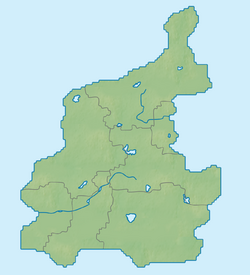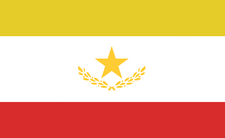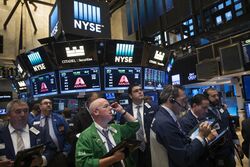Littland
The Federal Republic of Littland Forbundsrepublikken Littland | |
|---|---|
|
Flag | |
| Motto: Frihed over alt Freedom above all | |
| Anthem: Barn af Littland Child of Littland | |
 Map of Littland | |
| Capital and largest city | Kaslund |
| Official languages | Littish |
| Recognised regional languages | Kochian |
| Ethnic groups | 68% Litts 28% Kochs 4% Other |
| Demonym(s) | Littish - Litt |
| Government | Federal parliamentary republic |
• Federal President | Frederik Liebe |
• Prime Minister | Albert Simonsen |
• Speaker of the Folkekammer | Inger Knudsen |
| Landskammer | |
| Folkekammer | |
| Establishment | |
• Consolidation | c. 1050 |
• Helge Constitution | 1878 |
• Republic Proclaimed | 1913 |
• Current Constitution | 1965 |
| Area | |
• Total | 0 km2 (0 sq mi) |
| Population | |
• 2022 estimate | |
• 2015 census | 22,126,000 |
• Density | 000,000/km2 (0.0/sq mi) |
| GDP (nominal) | estimate |
• Total | 438.09 billion GK$ |
• Per capita | 19,800 GK$ |
| Gini | medium |
| HDI | high |
| Currency | Penning (LLP) |
| Driving side | right |
| Calling code | +08 |
| Internet TLD | .li |
Littland, officially the Federal Republic of Littland, is an island completely surrounded by water located in the northern seas of Land's End. The country is structured of seven federated states, one of which is Kaslund, the nations capital and largest city. Littland island has an area of 383,872 km2 (148,214 sq mi) and has a population of nearly 17 million. While Littish is the country's official language, many Litts speak the English language. Littland is a federal parliamentary republic with a Federal President as head of state and a Prime Minister as head of the federal government. The major cities of Littland include Kaslund, Klintrup, Lundum and Frankerup. As a developed country, with a high GDP per capita and a high Human Development Index rank, Littland offers social security and a universal health care system, environmental protection, and tuition-free university education. Littland has what is called a social market economy.
Geography
Littland is an island completely surrounded by water. Littland has an oceanic climate featuring genrally mild summers and cool but not cold winters. Littland experiences reliable and constant precipitation throughout the entire year. Despite this, thunderstorms are quite rare since hot and cold air masses meet infrequently in the region. The highest natural point in Littland is Rifbjerg at 176 metres above sea level. Littland has two major rivers, the longer Hampen river and smaller Ryå, which runs through the capital Kaslund.
Largest cities in Littland
| Rank | City | State | Population | ||
|---|---|---|---|---|---|
| 1 | Kaslund | Kaslund | 3,289,000 | ||
| 2 | Klintrup | Guldstrup | 1,706,000 | ||
| 3 | Lundum | Varborg | 1,348,000 | ||
| 4 | Frankerup | Sønderland | 1,013,000 | ||
| 5 | Lerte | Solbjerg | 667,000 | ||
| 6 | Halling | Varborg | 623,000 | ||
| 7 | Aalhavn | Tystrup | 586,000 | ||
| 8 | Gistrup | Sønderland | 543,000 | ||
| 9 | Rødskov | Rødholm | 364,000 | ||
| 10 | Tirslund | Solbjerg | 318,000 |
History
Late Kingdom (1878 - 1910)
Modern Littish history begins with the Constitutional Revolt in 1878, where King Helge III was forced to accept the signing of a constitution or face what would amount to a coup, having his powers stripped from him. The Helge Constitution as it become known as was a system which heavily favoured richer and especially aristocratic landowners, by restricting who could vote by imposing a wealth requirement which only the rich could pass.
Walter Regency (1910 - 1913)
This changed as King Helge passed away from tuberculosis in 1910, without an heir of his own. While a regency was common practice for whenever the Littish throne was vacant while an heir was found, the Walter Regency became a de facto military junta as Walter Nordskov, a hardline conservative, sought to crush left-wing politics from Littland. He was met by a fanatical and armed left-wing youth, which escalated after Walter was assassinated in 1913 by an unknown perpetrator. The resulting power struggle narrowly avoided a civil war as a new constitutional assembly was called and the situation was sorted out by the first Prime Minister of Littland, Torsten Einarsen, a social democrat.
The Republic (1913 - Present)
Ever since the economic stagnation in the early 90s the left-wing parties of Littland have been fighting each other more than the opposition, with many new parties splitting from old ones forcing the need of wide parliamentary blocs who aren't as unified as they themselves would like to think. Most noteworthy of these is the Littish Democrats in 2007 who won 25 seats in the Folkekammer in their first election, later forming the bloc The Progress List and grabbing power in the 2016 election.
Politics
Littland is a federal parliamentary republic. Federal legislative power is vested in the parliament consisting of the Folkekammer (lit. People Chamber) and Landskammer (lit. Lands Chamber), which together form the legislative body. The 183 seat Folkekammer is elected through closed list proportional representation of political parties, with a 2% electoral threshold. The Landskammer consists of 42 seats and is less powerful. Its members are selected by the state legislatures. The power of the Landskammer is rather limited, in most cases it only has veto-power over legislation. The judicial branch is headed by the Constitutional Court, which oversees the constitutionality of laws.
The Head of State in Littland is the Federal President. The Prime Minister runs the government and day-to-day politics while the role of the Federal President is mostly ceremonial. The Prime Minister heads the federal cabinet and thus the executive branch of the federal government. They are elected by and responsible to the Folkekammer. The current Prime Minister is Albert Simonsen.
Federal States
Littland is a federal state and comprises 7 constituent states. Each state (Delstat) has its own constitution and is largely autonomous, some topics however, such as foreign affairs and defence, are the responsibility of the federal government. The states have some legislative authority like in matters of culture, social welfare and nature protection.
Military
The armed forces of Littland, Forsvarsstyrken, is organised into Hæren (Army and Special Forces), Flåden (Navy) and Flyvevåbnet (Air Force). As of 2021, Forsvarsstyrken has a strength of 80,947 active soldiers. Conscription was compulsory until 2006 and Forsvarsstyrken is now a voluntary service.
Foreign Relations
Economy
Littland has a high-income social market economy with a highly skilled labour force and a high level of innovation, with a nominal GDP of $869.166 billion and a GDP PPP of $1.051 trillion. Littland has a conservative influenced welfare state, where contribution to the economy and active participation in the workforce allows for greater social security. The weakest members of society do have access to services that would be considered to be from a universal welfare model. The Littish service sector contributes approximately 80% of the total GDP, industry 18%, and agriculture 2% as of 2020. The unemployment rate is approx. 4.1%. The Littish currency, the Penning, is valued at approximately 4.71 penning per USD. (Nominal GDP being 4.093 trillion penning) The growth rate in 2018 was set at 2.4%.
The Littish stock market index is operated by Kaslund Stock Exchange. Kaslund is also a hub for startup companies and Littland is recognised for its large portion of small and medium enterprises. In 2020 the largest companies by revenue in Littland were: the retail giant Guldbrand Group, pharmaceutical company Parsol, electronics manufacturer Vagner Electronics and the largest Littish bank Littland Banking. Additionally, Guldbrand Group is the largest private employer in the country with 82,000 employees in 2021 and also owns the largest shopping center in Littland, Guldbrandcenteret.
Demographics
Etnicities in Littland
Health
Education
Culture
Media
Littish media and news programming are dominated by a few large corporations. In printed media Varsted Media, owns the largest newspapers Daglig Politik, Kaslund Tidende and HusBladet as well as major tabloids like Express. In television, publicly owned station LTV has a large shares of total viewer numbers, competing with Kanal 2 privately owned by Bravo Broadcasting.
Music
Cinema
Art
Sports
The national sport is football, the top four levels in Littland are managed by the Littish Football Association (LFU). The country's premier football competition is the 14-team EliteLiga. Other popular sports include handball, cycling, badminton and swimming. Sport is encouraged in school, and there are local sports clubs in most cities and towns.






